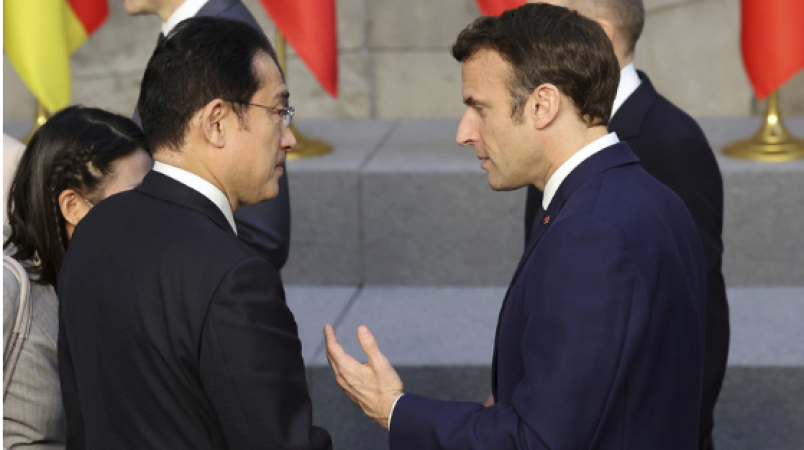
Paris: According to an Elysee Palace official cited by Politico, Paris has rejected a plan to establish a NATO liaison office in Japan, arguing the alliance shouldn't expand outside of the North Atlantic.
The official clarified to journalists on Friday that NATO stands for the North Atlantic Treaty Organisation, cautioned against muddying the definitions, and emphasised that even the much-discussed Article 5 of the bloc's treaty specifically mentions preserving "security of the North Atlantic area."
The opening of a NATO liaison office in Tokyo would be the alliance's first in Asia, according to Koji Tomita, the Japanese ambassador to the US, who made the announcement in May. Since 2007, when then-Prime Minister Shinzo Abe made his first trip to NATO's headquarters, the plan has been intermittently discussed, and it has recently come up again.
Also Read: Muslims in Denmark are "saddened and concerned" about the Qur'an burning in Sweden
The French official added, "We are not in favour as a matter of principle. In terms of the office, the Japanese government has admitted to us that they are not overly attached to it.
According to a recent Financial Times article, French President Emmanuel Macron personally thinks that the organization's charter places geographic restrictions that prevent NATO from enlarging into Asia.
Also Read: OIC chief and Pakistan's PM speak on the phone about the Swedish Qur'an burning incident
Over the years, Tokyo's cooperation with the union has grown steadily, and in 2018, it established its first NATO branch office in Brussels.
Last year, Prime Minister Fumio Kishida became the first head of state from Japan to go to a NATO summit. The bloc has extended invitations to Japan, Australia, New Zealand, and South Korea for the 2023 summit, which will be held in Vilnius, Lithuania on July 11 and 12. This is because the bloc has recently shown a greater interest in the Indo-Pacific region.
The NATO alliance should stay within its own sphere of influence and refrain from trying to increase its presence in Asia, according to China, who also claims that the continent "does not welcome bloc confrontation or military blocs."
Also Read: Protesters in France ignore bans to demonstrate against police brutality
Russia, which vehemently opposes NATO's growth in Eastern Europe, has also been critical of the alliance's efforts to expand into Asia. Vladimir Putin, the president of Russia, claimed in March that the US and its allies' efforts to forge a "global NATO" resembled those of Nazi Germany, Italy, and Japan in the 1930s, just before World War II began.